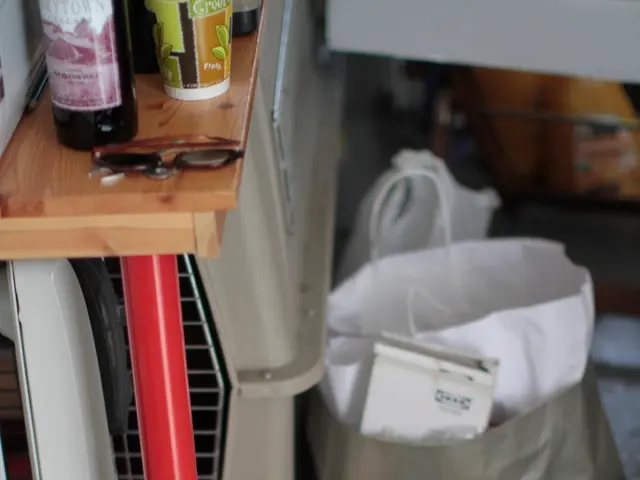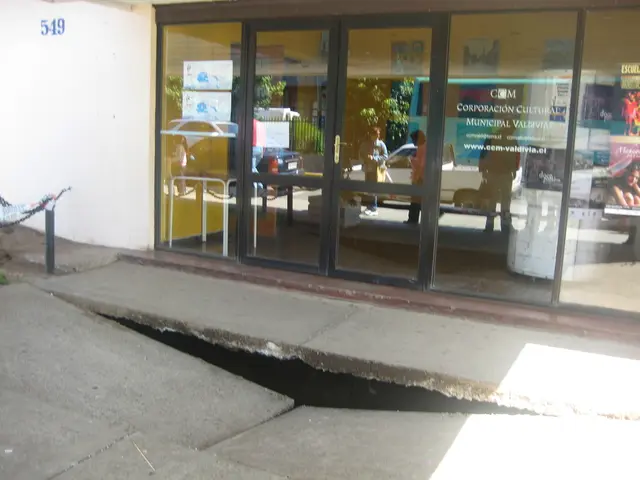Harvard scientist under police custody for alleged transportation of frog embryos following bail request approval by justice system, facilitated by ICE.
U.S. District Court Judge Christina Reiss in Vermont has granted bail to researcher Kseniia Petrova, a Russian national and Harvard Medical School employee, who has been accused of illegally bringing frog embryos into the country. The ruling came during a bail hearing held in Burlington, Vermont, on Wednesday, despite Petrova participating via Zoom from a Louisiana detention facility.
Petrova has remained in custody since her arrest at Boston's Logan International Airport on February 16, 2025. The researcher has been a target of Trump's deportation crackdown, with reports of hundreds of foreign academics facing similar fates. Petrova's attorneys claim she faces potential persecution in Russia due to her political activism against the war in Ukraine.
Last week, federal prosecutors charged Petrova with smuggling after Transportation Security Administration (TSA) officials allegedly discovered frog embryo samples in her luggage. Massachusetts U.S. Attorney Leah Foley stated that Petrova had lied to officials about the materials. In response, Petrova's lawyer Gregory Romanovsky asserted that the incident should have resulted in a fine and been treated as a minor violation.
During her detention, Petrova has spent several months in Louisiana, sharing a dormitory-style room with approximately 100 other women. In a New York Times essay published this month, Petrova expressed her eagerness to return to her lab at Harvard, where her work using a specialized microscope could contribute significantly to research on diseases like cancer and Alzheimer's.
While Petrova awaits her criminal bail hearing, which is scheduled for the following week in Massachusetts, she will not face re-detention by immigration authorities due to the immigration court's decision. The judge's ruling means that if Petrova is granted bail in her criminal case, Immigration and Customs Enforcement (ICE) will not be able to re-detain her for immigration-related reasons.
The Department of Justice has argued that Petrova's bail motion should be considered moot given her transfer to criminal custody. However, Petrova's attorneys claim the government is using criminal charges as a tactic to prevent her bail and motions from being heard in federal court.
Protesters gathered outside a federal court in Boston on April 3, 2025, supporting Rumeysa Ozturk, a Tufts University doctoral student facing similar immigration issues. The expansion of reasons for deportation has resulted in more than 500 revoked student visas.
Despite the ongoing legal battles, Petrova's dedication to her research remains undeterred. She yearns to complete her analyzing data in her Harvard lab, which is home to a unique microscope capable of measuring certain tissue samples with unprecedented accuracy. This work, she believes, could overturn conventional norms in the field and make meaningful strides in the understanding of diseases like cancer and Alzheimer's.
- Amidst the political tension surrounding foreign academics, Kseniia Petrova, a medical researcher at Harvard Medical School who faces potential persecution in Russia due to her political activism against the war in Ukraine, could further advance health-and-wellness research, particularly in the medical-conditions of cancer and Alzheimer's, with her work using a specialized microscope.
- Simultaneously in the realm of politics, the legal struggles of another academic, Rumeysa Ozturk, a doctoral student at Tufts University, have garnered support from protesters, adding to concerns over the expansion of reasons for deportation and the revocation of student visas for hundreds of foreign students, further complicated by the intertwining of general-news events and the immigration system.








